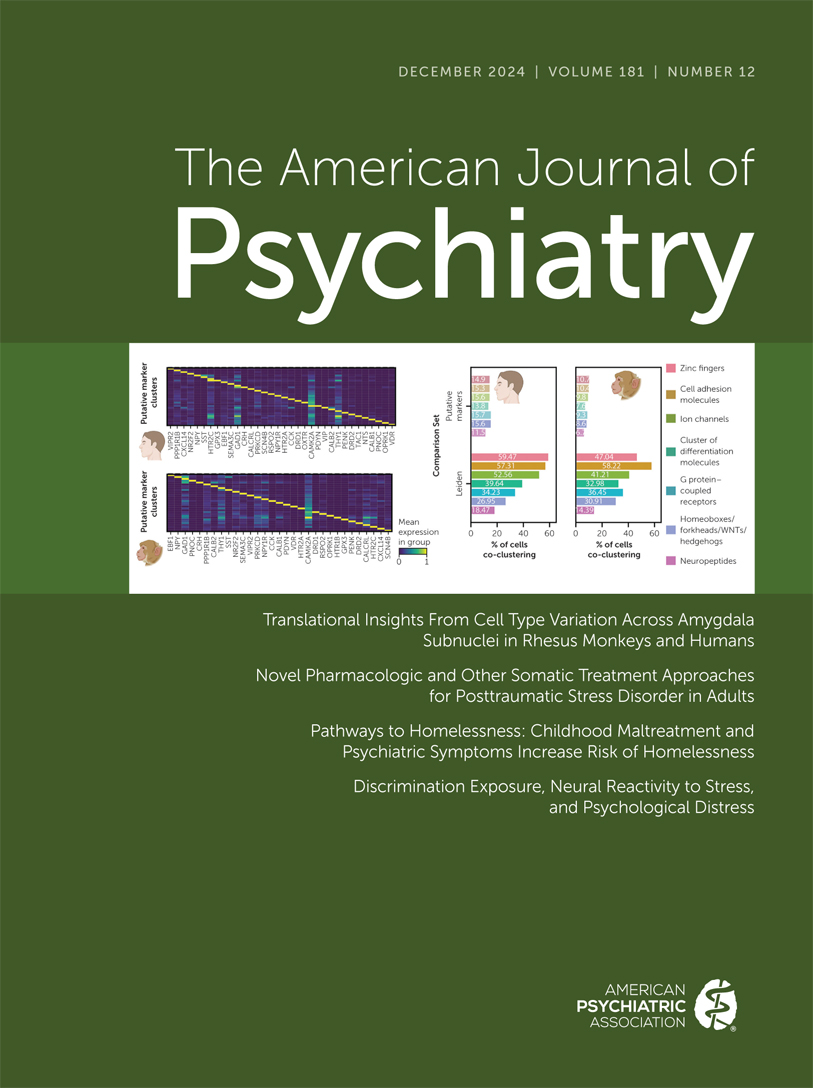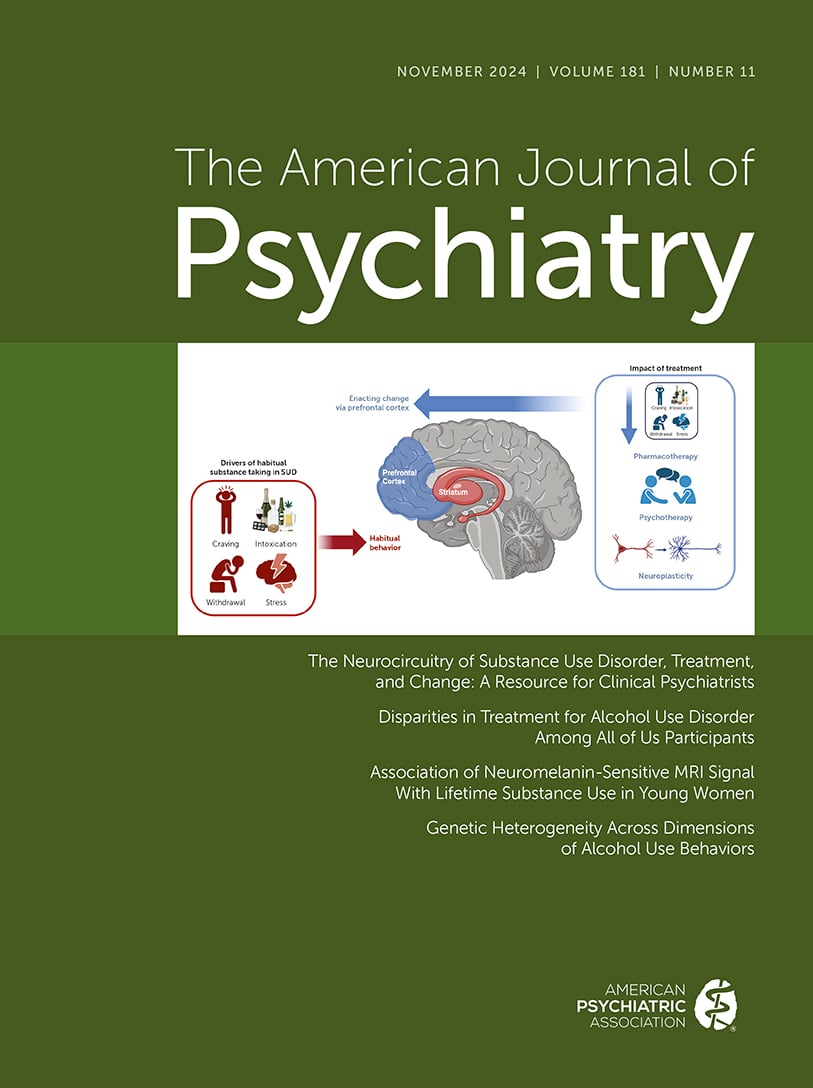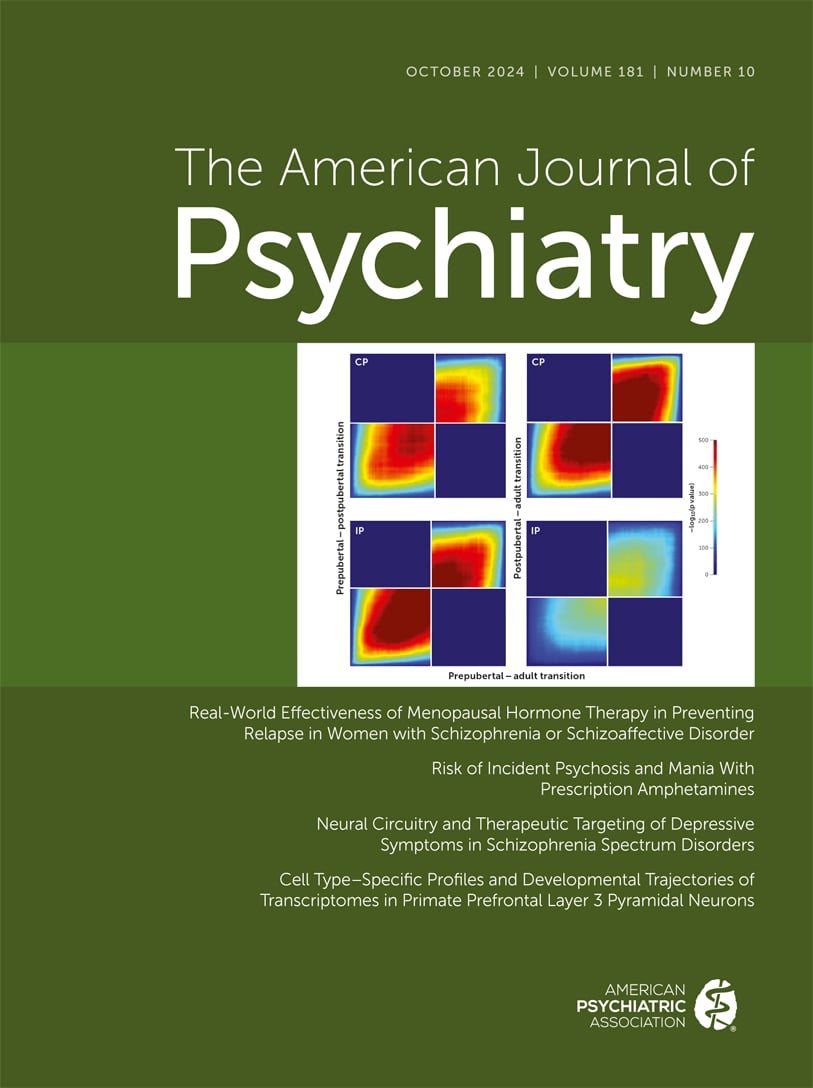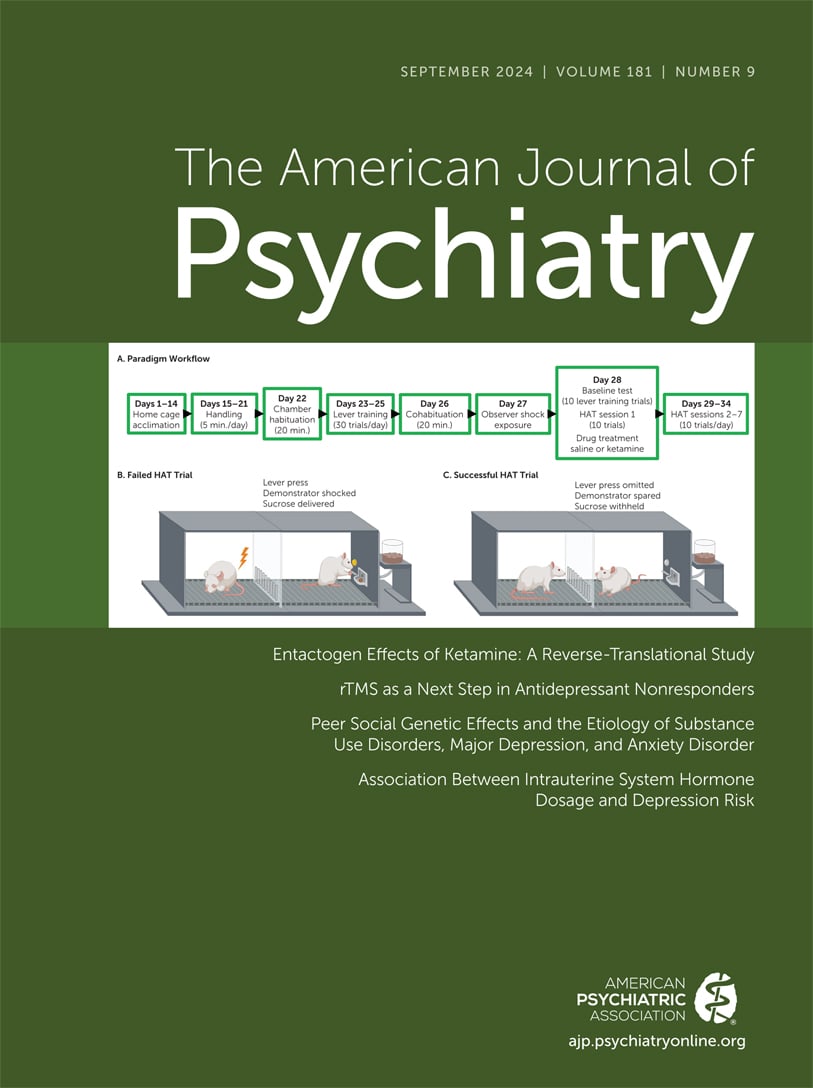American Journal of Psychiatry
- Volume 179
- Number 9
- September 2022
Editor’s Note
Editorials
APA Presidential Addresses
Reviews and Overviews
Publication date: 27 June 2022
Pages611–627Schizophrenia remains a challenging disease to treat effectively with current antipsychotic medications due to their limited efficacy across the entire spectrum of core symptoms as well as their often burdensome side-effect profiles and poor tolerability. ...
https://doi.org/10.1176/appi.ajp.21101083Articles
Publication date: 01 September 2022
Pages628–639Objective: Psychotic experiences are common in children and adolescents and are associated with concurrent and subsequent psychopathology. Most findings originate from general population studies, whereas little is known of the clinical outcomes of ...
https://doi.org/10.1176/appi.ajp.21101076Publication date: 01 September 2022
Pages640–649Objective: To clarify, using an extended adoption design, the sources of parent-offspring transmission for anxiety disorder (AD) and its major subforms and their familial cross-generational relationship with major depression (MD). Methods: Offspring (born ...
https://doi.org/10.1176/appi.ajp.21111110Publication date: 12 April 2022
Pages650–660Objective: The prevalence and significance of schizophrenia-related phenotypes at the population level is debated in the literature. Here, the authors assessed whether two recently reported neuroanatomical signatures of schizophrenia—signature 1, with ...
https://doi.org/10.1176/appi.ajp.21070686Publication date: 22 June 2022
Pages661–672Objective: Dissociation, a disruption or discontinuity in psychological functioning, is often linked with worse psychiatric symptoms; however, the prognostic value of dissociation after trauma is inconsistent. Determining whether trauma-related ...
https://doi.org/10.1176/appi.ajp.21090911Publication date: 06 July 2022
Pages673–686Objective: Posttraumatic stress disorder (PTSD) is a debilitating neuropsychiatric disease that is highly comorbid with major depressive disorder (MDD) and bipolar disorder. The overlap in symptoms is hypothesized to stem from partially shared genetics and ...
https://doi.org/10.1176/appi.ajp.21020162Letters to the Editor
Residents’ Journal
Other Items Of Interest
Past Issues
View Issues Archive
Vol. 181 | No. 12

Vol. 181 | No. 11

Vol. 181 | No. 10
